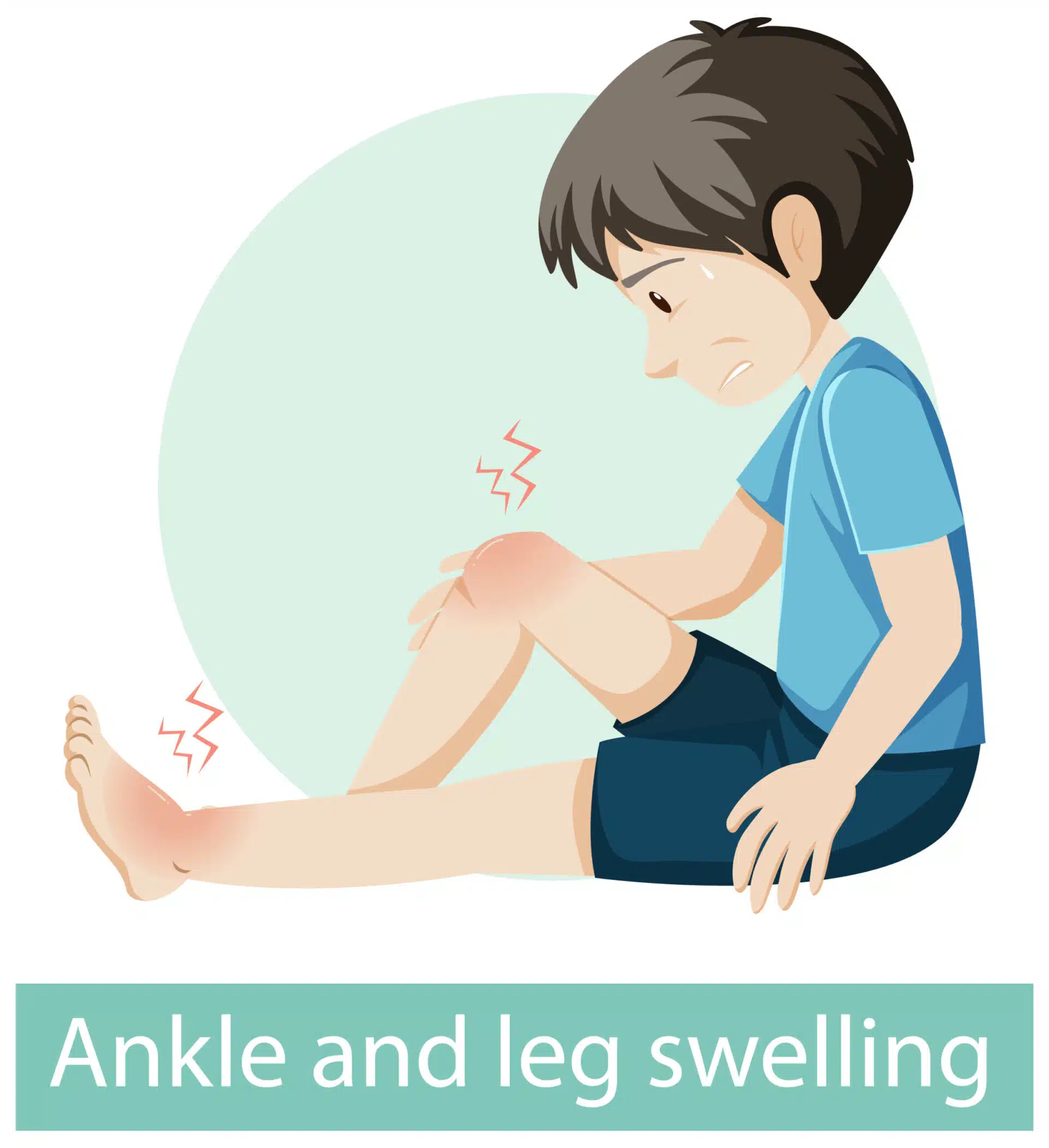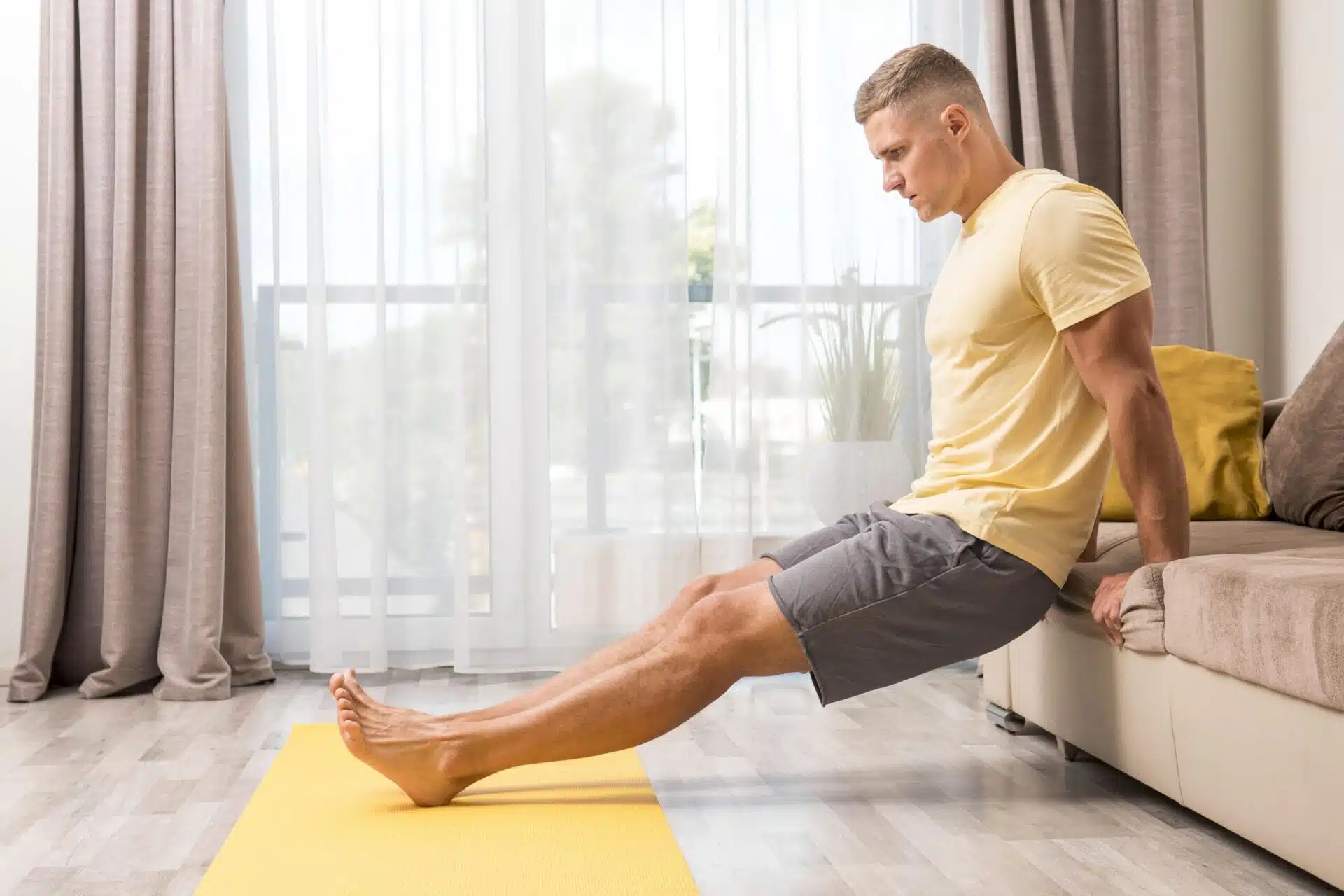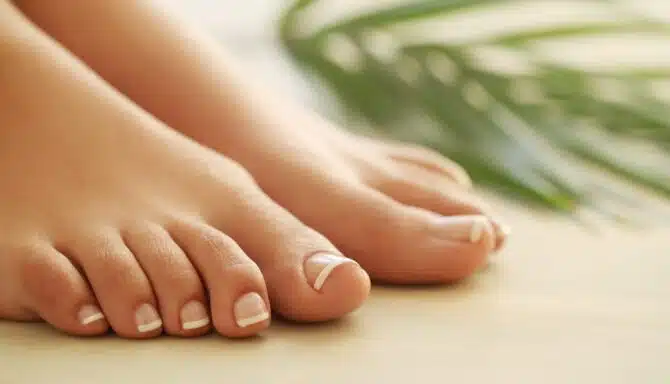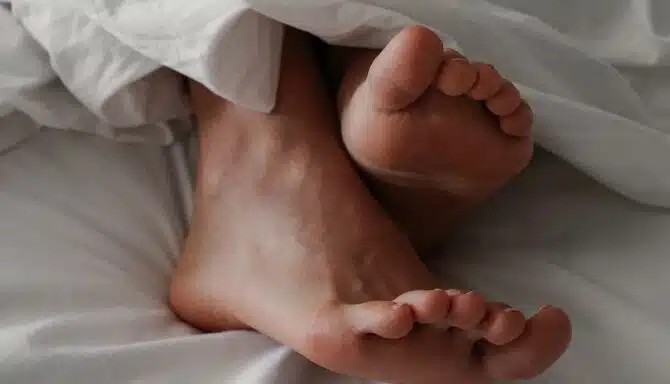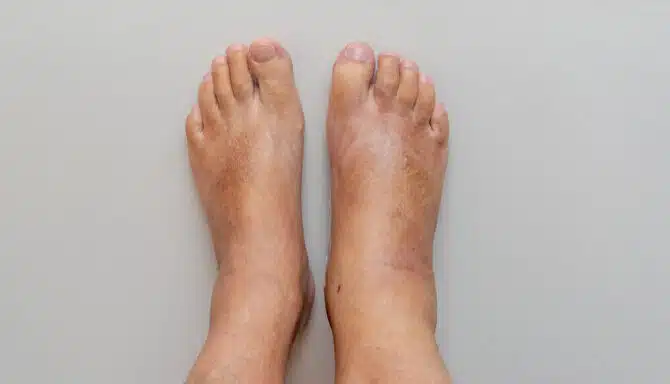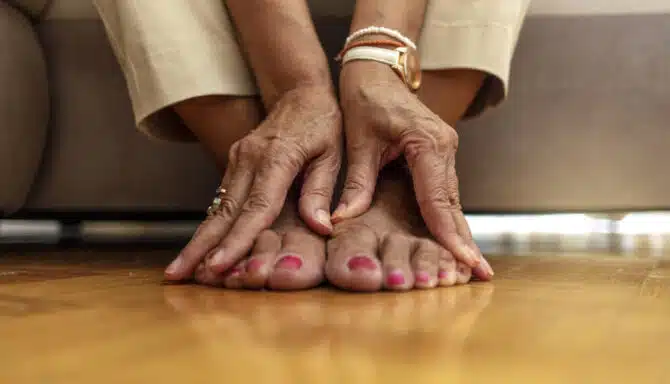November 28, 2024
Whether caused by an injury, circulation problems, or a chronic condition, foot and ankle swelling shouldn't be ignored. In this blog, we'll explore potential causes of swelling, when it might be a sign of something more serious, and how seeing a foot specialist at a Toronto foot clinic can help you get back on your feet.
What is Foot Swelling?
https://www.youtube.com/shorts/dFZVG-2ymxY
The medical term for foot and ankle swelling is called edema. This term can also be used for swelling in other body parts. It is an accumulation of fluid leaking from small blood vessels into the tissues of the foot and ankle. This causes the area to appear puffy or enlarged.
Swelling in the feet often occurs because of circulation issues, injuries, infections, or underlying health conditions. The lower extremities are especially vulnerable to swelling because gravity naturally pulls fluids downwards.
The body’s circulatory and lymphatic systems typically manage this fluid, but when they’re not functioning optimally, fluid retention can occur. Your body’s inflamatory response to foot and ankle injuries, hormonal changes (pregnancy, etc.) and increased blood volume can also lead to swelling.
Edema in the feet can range from a mild inconvenience to extremely distressing and debilitating. It can affect your gait pattern (the way you walk), make buying shoes that fit almost impossible, and coincide with other uncomfortable symptoms. You shouldn’t ignore foot and ankle swelling, even if you think you know the cause. This is because:
It can get progressively worse
It can signal a health condition you weren’t aware you had
It can be a sign that a foot injury is more serious than you thought
It can lead to other complications
It may require prompt treatment
Causes of Swollen Feet and Ankles
There are numerous causes of swollen feet and ankles. Some are mild and going away over time, while others are more severe and debilitating and may require consistent assessments and check-ups with either a physician or a foot specialist, like a chiropodist or podiatrist. If you notice swelling within your feet that is new then discuss with with you physician. Common causes of foot and ankle swelling include:
Injury. Sprains, fractures, and strains can cause localized swelling due to inflammation in the injured tissues. To protect yourself, check out the best ways to prevent foot injuries.
Infections. Conditions like cellulitis, a bacterial skin infection, can lead to swelling, redness, and warmth in the affected area.
Venous insufficiency. This is a term for damaged vein valves and in some circumstances be caused by deep vein thrombosis (DVT) or malformation in the leg veins. General venous insufficiency is common especially as we age. Poor blood flow from the legs back to the heart causes fluid buildup, leading to swelling in the lower legs and feet.
Lymphedema. Blocked or damaged lymphatic vessels prevent fluid drainage, causing chronic swelling, often in one leg or foot.
Heart, kidney, or liver disease. These conditions can disrupt fluid balance in the body, leading to retention in the feet and ankles.
Pregnancy: Increased blood volume and pressure from the growing uterus can cause fluid accumulation, especially in the lower extremities.
Prolonged standing or sitting. Sitting in one position OR standing for extended periods can cause fluid to pool in the legs and feet due to gravity. Office workers, restaurant servers, cooks, flight attendants, and more can experience mild swelling simply due to their occupation.
Gout. Gout is a type of arthritis caused by high levels of uric acid in the blood, leading to the formation of urate crystals in joints. The result is intense burning pain, redness, and swelling, particularly in the big toe. Improving your diet may be able to help with flair ups.
Diabetes: The top of the feet and ankles can swell due to nerve damage caused by diabetic neuropathy.
Diet. High sodium diets can cause excessive swelling in the legs.
Signs Your Swollen Feet and Ankles May be Serious
https://www.youtube.com/shorts/dD0T2wUUFdQ
Below are some coinciding symptoms that may be tell-tale sign of a health condition. As always, if anything is new, then to see your physician rather than to leave it:
Burning sensation. Persistent burning in the feet along with swelling could indicate nerve damage.
Redness and warmth. Swelling accompanied by redness, warmth, and tenderness may signal an infection, such as cellulitis, that needs attention.
Sudden onset of swelling. Rapid or sudden swelling in one leg could indicate a blood clot or deep vein thrombosis (DVT)s. This condition requires urgent care.
Pain: Severe pain along with swelling, especially after an injury, may point to a fracture or ligament damage.
Swelling in one foot only: Sometimes localized issues can indicate a more severe and specific problem.
Shortness of breath or chest pain. These symptoms can indicate heart or lung issues, like congestive heart failure, and requires immediate medical help.
Skin Changes: Discolored, tight, or shiny skin over swollen areas may suggest lymphatic or circulatory issues needing evaluation. Red toes or dark blue skin can signify peripheral artery disease, coronary heart disease, high blood pressure and more.
Persistent or worsening swelling. Swelling that doesn’t improve or worsens over time could be a sign of an underlying health condition that needs treatment.
When to See a Podiatrist or Chiropodist: Treatment
https://www.youtube.com/shorts/IryRcL4JPjI
You should always see a physician or foot specialist if you’re experiencing discomfort in any capacity. Remember: foot issues are not “normal.”
Because foot and ankle swelling is usually caused by an underlying medical condition, you should first see your family doctor. They can refer you to the appropriate specialists and run the necessary testing to determine what is causing the swelling. Your treatment options may target edema directly, or they may target the underlying health condition.
Once you determine the underlying cause of the foot swelling, a foot specialist or foot clinic can provide solutions to manage and accommodate the condition, so you can live your life as comfortably as possible. Below are some services a foot clinic can offer to help foot and ankle swelling:
Compression Socks
Compression stockings are a great option for venous insufficiency, pregnancy, fatigue-related swelling, and sometimes even underlying health conditions like lymphadema. They reduce swelling by promoting blood flow and limiting fluid buildup in the lower extremities. A common myth is that they are clunky, noticeable medical devices that clash with your clothing, but they are actually quite fashionable and sleek. Most people will not even realize you are wearing them.
You can get standard knee-high socks or even pantyhose, depending on how your activities and how you want to dress them up. You can get a prescription from a physician, and then stop by our Toronto foot clinic, where our certified fitters can measure you and help you select the best stockings for you.
As compression stockings can be contraindicated for some conditions (like diabetes and periphery artery disease), it's strongly recommended that you first visit discuss compression stockings with your family doctor if you have any underlying health concerns.
Orthopedic Footwear
Orthopedic shoes can accommodate swelling by offering several key features designed to provide comfort and support:
Adjustable straps and laces. Many orthopedic shoes come with adjustable fastenings that allow for a customizable fit, accommodating changes in foot size due to swelling.
Wide toe boxes. These shoes often have a wider, more spacious toe area, which helps to prevent pressure on swollen feet and allows room for expansion.
Elastic materials. Some orthopedic shoes are made with elastic or stretchable fabrics, allowing them to gently conform to the shape of the foot and adjust to fluctuations in swelling throughout the day.
Extra depth. Orthopedic shoes often have a deeper design, providing more room for foot swelling and preventing tightness that could worsen discomfort.
By combining these features, orthopedic shoes can help manage swelling while providing the support needed for optimal foot health.
Diabetic Foot Care
https://www.youtube.com/shorts/4P3UiDSFzr4
If your edema is caused by diabetic neuropathy or periphery artery disease, diabetic foot care at a foot clinic should be a part of your monthly routine. At a diabetic foot care appointment, your chiropodist will monitor your foot health. They'll examine your feet to check for sensation, circulation, and check for any potential causes for concerns - like disease progression and worsening circulation issues. Routine diabetic foot care also involves wound and nail care, diabetic foot education, and more. While these practices don’t directly target swelling, they are all interconnected and help reduce the risk of complications that can worsen swelling.
Biomechanical Assessment
If your swelling coincides with an injury and other chronic foot pain, a biomechanical assessment and gait analysis with a chiropodist can help. A chiropodist can then diagnose any underlying muscular or biomechanical issues that are causing or contributing to the foot pain, and make treatment recommendations like custom orthotics.
Additional Swollen Foot and Ankle Treatments
RICE Method
The RICE method is an acronym for a popular at-home treatment routine for acute foot injuries: rest (avoiding activities that strain the foot), ice (applying cold packs to reduce swelling and pain), compression (using bandages, tape, compression socks, and more to limit swelling), and elevation (raising the foot above heart level to help drain excess fluid). If you're
Treatments That Target Underlying Health Conditions
When foot swelling is linked to serious underlying health conditions, treatments aim to address the root cause and prevent further complications.
For example, conditions like heart failure, managing the condition with medications can help reduce fluid retention and ease swelling. In cases of kidney disease, doctors may adjust medications and recommend dietary changes to help the kidneys function more effectively, reducing the build-up of excess fluid in the body.
In some lymphatic conditions, such as lymphedema, may be treated with specialized therapy, including manual lymph drainage to help encourage the movement of fluid away from the swollen areas. Compression therapy is also helpful for lymph conditions.
Each treatment is tailored to the specific health condition causing the swelling, and addressing the underlying issue can significantly reduce or even prevent the recurrence of swelling. Regular monitoring and early intervention are key to managing these conditions effectively.
https://youtube.com/shorts/2mS-9D7LHq4?si=bOOBryZI6ne5VrtP
